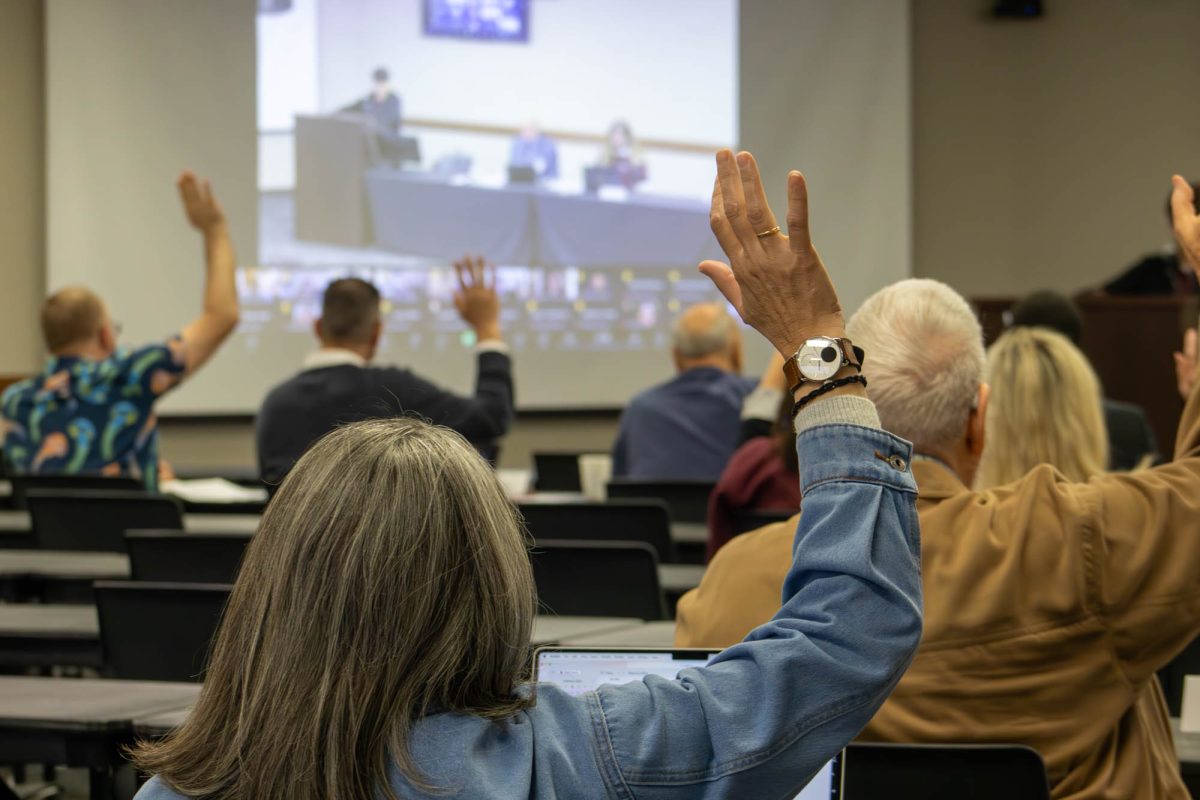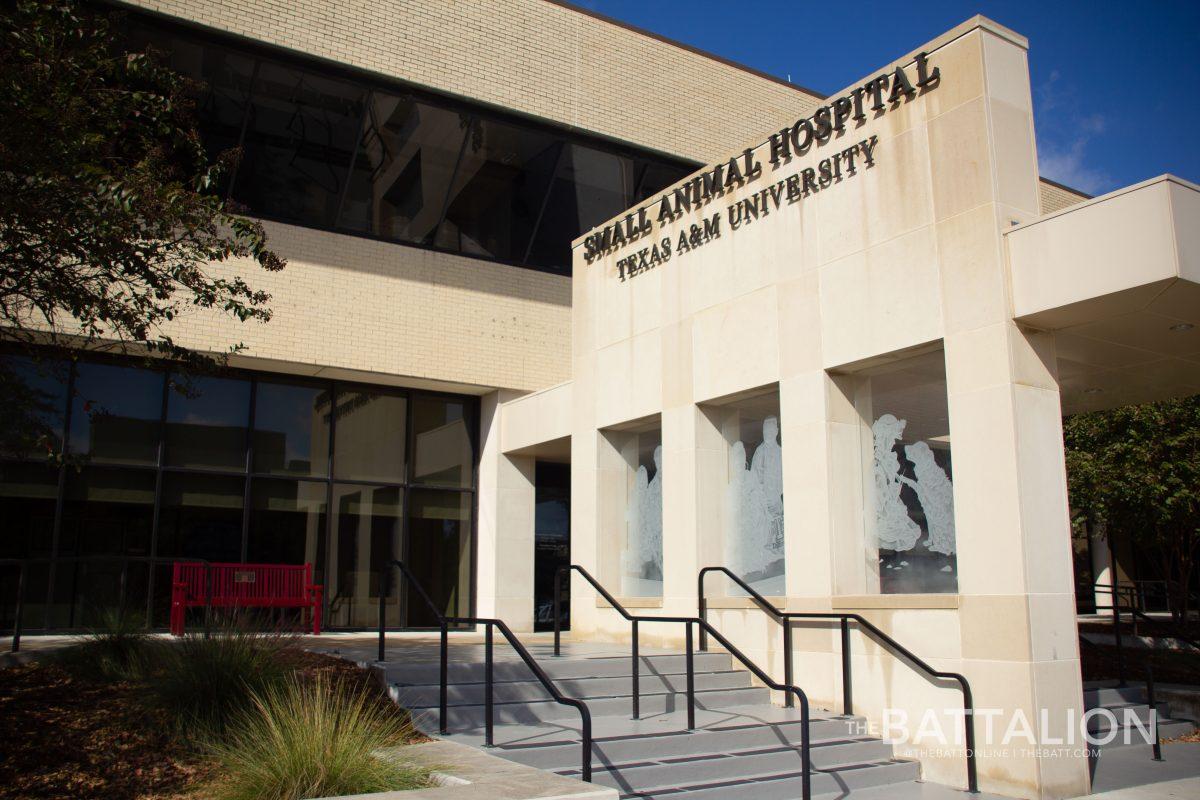The tenth meeting of the 42nd session of the Faculty Senate took place Monday, where faculty discussed several updates, including recent concerns about the revocation of international students’ visas. As of Monday afternoon, 23 Texas A&M international students have had their legal status revoked, part of an increasing number of national revocations underway by the Trump administration.
According to Angie Hill Price, the senate’s speaker, A&M is working with affected students through the International Student and Scholar Services, or ISSS. Price said ISSS continues to post updated information online for students who may be hesitant to speak with someone directly.
“We’re trying to make sure we support these students in the best way possible on an individual basis,” Price said.
Price advised students to report concerns of being unfairly targeted or questioned about their citizenship to the Office of Civil Rights and Title IX, which investigates civil rights violations on campus.
“If we are complying with federal student law regarding data, and there are requests for official information, they must go through the office of general counsel or the office of university risk, ethics and compliance to ensure we are providing what is legally required,” Price said.
Raymundo Arroyave, the associate department head for research in materials science and engineering, said the university must remind international students “that they have rights, they are valued and they are welcome.”.
“We don’t have a statement from the administration that says that,” Arroyave said.
Arroyave went on to say that his students are afraid.
“They do not know what to do,” Arroyave said. “We need more assurance that we take care of them, and if there has been a statement, it has not been strong enough.”
Price responded that a statement had been included in a campus-wide email sent out the previous Friday. In it, Provost Alan Sams said that while university officials don’t know why students are being targeted, they are monitoring the situation.
“I share this information with all of you so that we can, together, continue to make all of the students, faculty and staff who comprise the Aggie Family, feel the comfort of that family during this time,” Sams said in the email. “We are committed to doing everything in our power to support our international community as a valuable part of the university.”
Samiran Sinha, a statistics professor, asked whether students whose visas were revoked are receiving any legal help. He mentioned the importance of international students in the university arena and said their presence contributes significantly to research and innovation.
Associate Vice President for Global Engagement Holly Hurdson responded that the university is not currently offering direct legal aid.
“We understand this is an unprecedented situation, and we’re still figuring out what we’re allowed and not allowed to do,” Hurdson said. “What we are doing is connecting students directly with immigration attorneys who are willing to provide free initial consultations. We are also connecting them with law professors at the law school who have offered to help.”
She reiterated that the university is focused on sharing resources and making sure students find appropriate legal support.
Other concerns were raised by assistant professor Julie Hartell from the college of architecture regarding traveling abroad, particularly for students and faculty whose visa renewals or reentry approvals have caused anxiety.
“I’m on a green card myself, and I’m scared to go to my own country,” Hartell said. “I’ve even heard recommendations to travel with burner phones because it’s becoming common to get searched at the border.”
Hartell had questions regarding this situation for international students.
“I can only imagine how our students from China, Iran and other countries on travel concern lists are feeling,” Hartell said. “Faculty I know are now advising students not to attend international conferences, even though those are valuable opportunities for growth.”
Hurdson explained that while the university cannot guarantee reentry for students without U.S. citizenship, it’s trying to provide guidance.
“We are creating travel guidance and sending direct emails to our international students and scholars,” Hurdson said. “We’re advising them to travel with all their paperwork in hand and, if possible, with a U.S. citizen. We’re also sharing the legal guidance we’re receiving and doing our best to communicate not only with affected students but with the entire international student and scholar community.”
















